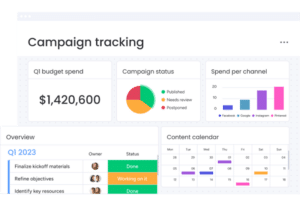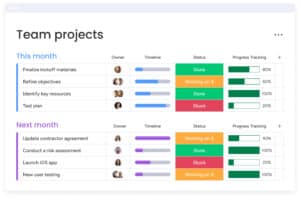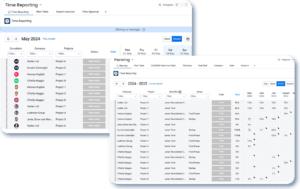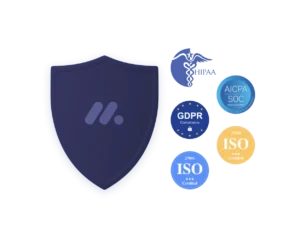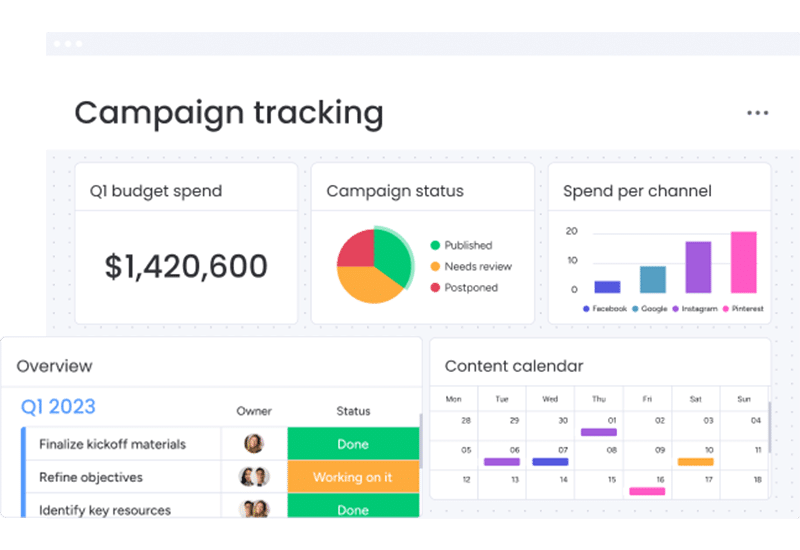Introduction
Understanding the difference between project management and product management is crucial for companies aiming to streamline their operations and ensure the successful execution of their strategies. Although these roles may seem similar at first glance, each holds a unique place within an organisation. They drive success through distinct paths and objectives. This blog post aims to demystify the difference between project management and product management. Further offering clear insights into their roles, responsibilities, and how they impact the broader business landscape.
The Vital Role of Project and Product Management in Modern Businesses
Both project management and product management are pivotal in propelling businesses forward. Project managers are the architects behind the scenes, turning ideas into reality within the allocated time and resources. On the other hand, product managers act as visionaries, guiding a product through its lifecycle to ensure it meets market needs and customer expectations. Recognising the difference between project management and product management is the first step towards leveraging each role’s strengths. This is to ensure that projects are not only completed efficiently but also drive long-term value.
Navigating the Complexities of Project and Product Management
The journey to understanding the difference between project management and product management involves more than just defining two job titles. It’s also about appreciating the strategic importance of each role in achieving business objectives. This introduction sets the stage for a deeper exploration into how these roles diverge in their approach to leadership, problem-solving, and goal setting. As we delve into the specifics, keep in mind that the synergy between project and product management can significantly enhance organisational effectiveness. In turn, making the distinction between them not just a matter of semantics but a strategic imperative.
Setting the Stage for Strategic Success
By exploring the difference between project management and product management, organisations can better position themselves to make strategic decisions that align with their goals. Whether it’s launching a new product or implementing a crucial project, understanding the unique contributions of project and product managers can lead to more informed planning, execution, and, ultimately, success. This blog post aims to equip readers with the knowledge to discern between these two pivotal roles, ensuring they can apply this understanding to foster a culture of innovation and efficiency within their teams.
Defining Project Management and Product Management
To fully grasp the difference between project management and product management, it’s essential to understand what each term encompasses. While both roles aim to drive business success, they do so through different approaches and areas of focus.
What is Project Management?
Project management is the discipline of initiating, planning, executing, controlling, and closing the work of a team to achieve specific goals and meet specific success criteria at a specified time. A project is a temporary endeavour designed to produce a unique product, service, or result with a defined beginning and end (usually time-constrained, and often constrained by funding or deliverables). It’s undertaken to meet unique goals and objectives, typically to bring about beneficial change or added value.
Key Responsibilities of Project Managers:
- Initiating: Defining the project at a broad level, ensuring that it is feasible and clearly outlining its objectives.
- Planning: Developing a detailed project plan that includes scope, timelines, resources, and budgets.
- Executing: Leading the team to carry out the project plan, managing resources and coordinating tasks.
- Monitoring and Controlling: Tracking the project’s progress, and making adjustments as necessary to stay on track.
- Closing: Completing and delivering the project, ensuring all objectives have been met and formally concluding the project.
What is Product Management?
Product management is an organisational function within a company dealing with planning, forecasting, production, or marketing of a product at all stages of the product lifecycle. Similarly, product lifecycle management (PLM) integrates people, data, processes, and business systems. It provides product information for companies and their extended supply chain enterprise.
Core Responsibilities of Product Managers:
- Market Research: Understanding market needs and identifying opportunities for new or improved products.
- Vision and Strategy: Defining the vision for a product and outlining a strategy to achieve this vision over time.
- Product Development: Overseeing the development of the product, working closely with engineering teams to build features that meet customer needs.
- Go-to-Market Strategy: Planning and executing the launch of new products and managing their lifecycle.
- Performance Monitoring: Measuring the product’s performance in the market and iterating based on feedback and data analysis.
Omnitas Newsletter
Sign up for our monthly newsletter to stay up-to-date on our latest blog articles, videos and events!
Thank you!
You have successfully joined our subscriber list.
The Roles and Responsibilities Diverge
To understand the difference between project management and product management, it’s crucial to explore how their roles and responsibilities not only differ but also complement each other within a business setting. While both are essential for driving projects and products towards success, the nature of their work, goals, and impact on the organisation vary significantly.
Project Management: The Architect of Execution
Project management plays a pivotal role in bringing concepts and plans to life within a specific timeframe and budget. The project manager acts as the architect of execution, focusing on the “how” and “when” of getting things done.
Distinct Responsibilities:
- Timeline Management: Ensuring that projects are completed within the set deadlines, project managers meticulously plan and adjust timelines.
- Resource Allocation: They are responsible for assigning tasks based on team members’ strengths and availability, and managing resources efficiently.
- Quality Control: Overseeing the quality of work to ensure that project outcomes meet the required standards and objectives.
- Stakeholder Communication: Maintaining clear and continuous communication with stakeholders to align expectations and report on progress.
The project manager’s role is inherently temporary, concluding once the project is delivered. Their success is measured by how closely they adhere to the predefined constraints of scope, time, and budget.
Product Management: The Visionary of Product Lifecycle
In contrast, product management is concerned with the broader vision and success of a product from inception through to its eventual discontinuation. Product managers are the visionaries, focusing on the “what” and “why” of a product.
Core Focus Areas:
- Strategic Direction: Setting the long-term vision and strategy for a product, ensuring it aligns with business goals and market needs.
- User Experience: Prioritising features and enhancements based on user feedback and usability research to improve the product.
- Market Positioning: Understanding the competitive landscape and positioning the product to achieve maximum market share.
- Lifecycle Management: Managing the entire lifecycle of a product, from development through launch, growth, maturity, and decline phases.
Product managers have a continuous role, evolving the product over time to meet changing market demands and technological advancements. Their success is measured by the product’s market performance, including revenue, market share, and customer satisfaction.
Bridging the Gap for Organisational Synergy
While the difference between project management and product management is clear, their interplay is vital for organisational synergy. Project managers execute the strategic vision set by product managers, turning ideas into reality. Conversely, product managers rely on the successful execution of projects to deliver enhancements and innovations that drive the product forward.
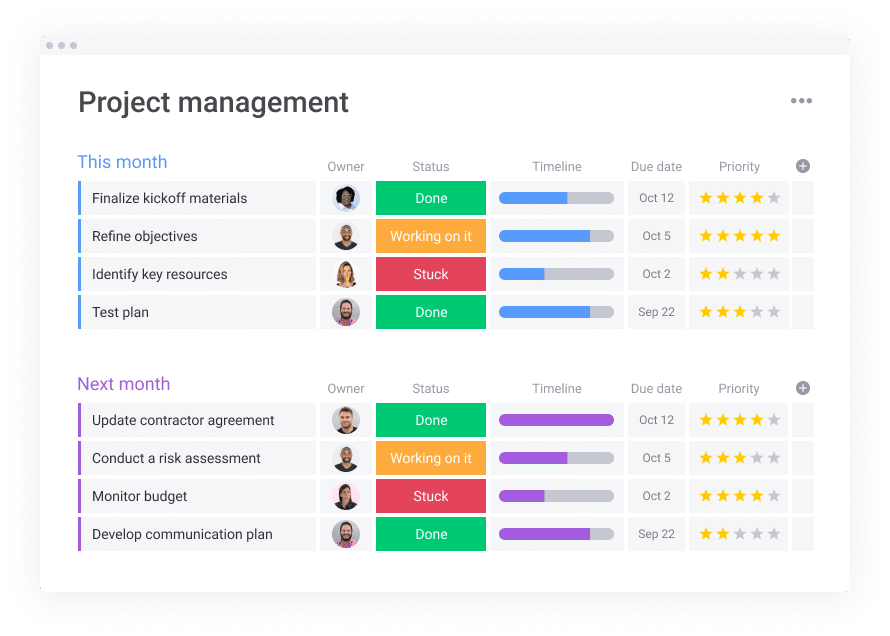
Skillsets and Tools for Success
Understanding the difference between project management and product management extends into recognizing the unique skill sets and tools each role leverages for success. These competencies and technologies are not just about executing tasks; they’re about enhancing efficiency, fostering innovation, and driving strategic outcomes.
Essential Skillsets for Project Managers
Project managers require a versatile skill set to navigate the complexities of delivering projects on time, within budget, and to the agreed specifications.
Key Skills Include:
- Leadership and Team Management: The ability to lead, motivate, and manage teams effectively is paramount. This includes conflict resolution and fostering a collaborative environment.
- Risk Management: Identifying potential risks, assessing their impact, and planning mitigation strategies are crucial for ensuring project success.
- Communication: Clear, concise, and effective communication with team members, stakeholders, and clients is vital for alignment and transparency.
- Organisational Skills: Mastery in task prioritization, resource allocation, and time management ensures that projects progress smoothly.
Must-Have Skills for Product Managers
Product managers, on the other hand, blend strategic thinking with user-centric design to guide products to market success.
Essential Skills Include:
- Market Insight: Understanding market trends, customer needs, and competitive landscape to inform product strategy.
- Strategic Planning: The ability to set long-term vision and short-term goals, aligning product development with business objectives.
- User Experience Design: A keen sense of design and user experience, ensuring the product meets the end-users’ needs and expectations.
- Analytical Skills: Utilising data to inform decisions, measure performance, and iterate on the product design and strategy.
Leveraging Tools for Efficiency and Impact
Both project managers and product managers benefit significantly from utilizing specialized tools designed to enhance collaboration, streamline workflows, and provide actionable insights.
For Project Managers:
- monday.com: An intuitive platform that facilitates project planning, tracking, and collaboration. It’s ideal for managing timelines, resources, and stakeholder communication.
For Product Managers:
- monday dev: While commonly used for project management, monday.com has another product called monday dev that is effective for managing product development tasks and workflows. Being able to keep both project management and product management within the same software is highly beneficial for streamlined communication and flow of information.
The Intersection of Skillsets and Tools
The interplay between skill sets and tools underscores the difference between project management and product management. Project managers focus on execution excellence, leveraging tools that enhance project tracking and team coordination. On the other hand, product managers employ tools that offer strategic insights, market analysis, and product roadmapping. The right combination of skills and technologies not only facilitates the success of projects and products but also fosters a culture of continuous improvement and innovation within organizations.
Understanding the specific competencies and tools unique to project and product management can significantly enhance an organization’s ability to execute projects efficiently and navigate products through their lifecycles successfully. This tailored approach ensures that both project and product managers are equipped to meet their distinct challenges. In turn, this drives business growth and market competitiveness.
Integrating Project and Product Management for Organisational Synergy
Achieving a harmonious integration of project and product management within an organization is key to unlocking its full potential. By understanding and appreciating the unique contributions of each role, businesses can foster a collaborative environment that propels projects and products towards success.
The Interplay Between Project and Product Managers
The collaboration between project and product managers is crucial for bridging the gap between strategic vision and tactical execution. This interplay ensures that projects align with the long-term goals of the product, enhancing both its development and market performance.
Strategies for Effective Collaboration Include:
- Shared Goals: Establishing common objectives that align project outcomes with product strategy.
- Regular Communication: Ensuring open lines of communication to discuss progress, challenges, and shifts in strategy.
- Cross-Functional Teams: Encouraging teams that include both project and product management perspectives to foster a holistic approach to development and implementation.
- Mutual Respect and Understanding: Acknowledging the value of each role and leveraging their strengths in decision-making processes.
Leveraging Tools like Make for Seamless Integration
Tools like Make play a crucial role in automating workflows and facilitating the seamless integration of project and product management processes. By automating routine tasks and ensuring data flows smoothly between systems, Make can help free up valuable time for strategic thinking and collaboration.
Benefits of Using Make Include:
- Streamlined Processes: Automating workflows between different platforms ensures teams are always in sync.
- Enhanced Collaboration: Integration tools help break down silos, ensuring that information is accessible across project and product teams. As a result, this fosters better decision-making and innovation.
- Agility and Flexibility: Automated workflows can be quickly adjusted to reflect changes in project scope or product strategy. As a result, this enables organizations to remain agile and responsive.
Integrating project and product management not only enhances operational efficiency but also drives strategic alignment across all levels of the organization. By fostering a culture of collaboration and leveraging the right tools, businesses can ensure that their projects and products are positioned for success in a competitive marketplace. This holistic approach not only capitalizes on the distinct strengths of project and product managers but also aligns them towards a common goal. This goal being to deliver value to customers and drive business growth.
Conclusion
The journey through the difference between project management and product management underscores the pivotal roles these functions play within an organization. While project managers focus on the execution of specific initiatives within set timelines and budgets, product managers steer the strategic vision and lifecycle of a product to ensure it meets market demands and drives long-term value.
The key to leveraging the full potential of both project and product management lies in understanding their unique contributions and fostering a collaborative environment where their roles and responsibilities complement each other. By doing so, organizations can not only achieve their immediate project goals but also ensure the sustained success and growth of their products in the competitive marketplace.
Integrating tools like monday.com and Make can significantly enhance this synergy, streamlining workflows, improving communication, and ensuring that strategic objectives are met with efficiency and innovation. These platforms are designed to support the distinct needs of project and product management, making them invaluable resources for any business looking to optimize its operations and drive growth.
Try Out monday.com and Make for Free
Ready to take your project and product management to the next level? Discover how monday.com and Make can transform your operations with our free trial links. Start your free trial with monday.com and explore Make’s capabilities today, and see firsthand the impact of streamlined project and product management.
Need Help Getting Started?
If you’re looking for expert guidance on implementing monday.com and Make within your organization, Omnitas is here to help. Our team of specialists will work with you to tailor these platforms to your specific business needs, ensuring you leverage their full potential for maximum efficiency and growth. Contact us below to get started, and let’s unlock the power of effective project and product management together.
If you found this blog post useful, make sure to sign up for our monthly newsletter below. Stay in the loop regarding all things business efficiency and automation!
